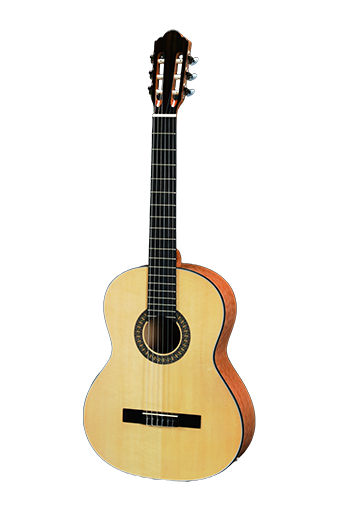
Why Are Some Guitar OEM Factories Specialized in Acoustic guitars?
The guitar manufacturing industry is vast and diverse, with factories specializing in different types of instruments, including electric, classical, and acoustic guitars. Among these, some Original Equipment Manufacturer (OEM) factories focus exclusively on acoustic guitars. This specialization arises from a combination of historical, technical, economic, and market-driven factors. Understanding why certain OEM factories dedicate themselves to acoustic guitars requires an exploration of these factors in detail.
1. Historical and Cultural Factors
Acoustic guitars have a long and rich history, dating back centuries to their predecessors like the lute and the vihuela. The modern acoustic guitar, particularly the steel-string and classical varieties, became popular in the 19th and 20th centuries. Regions with strong traditions in acoustic guitar craftsmanship, such as Spain (for Classical guitars) and the United States (for steel-string guitars), have influenced the specialization of factories in these areas.
Many OEM factories are located in countries or regions where acoustic guitar building is deeply embedded in local culture. For example, factories in China, Indonesia, or Vietnam may have developed expertise in acoustic guitars due to the availability of skilled labor trained in traditional woodworking techniques. These regions often have a legacy of producing high-quality acoustic instruments for export, leading to a natural specialization over time.
2. Technical and Material Considerations
Acoustic guitars are fundamentally different from Electric guitars in terms of construction and materials. The sound of an acoustic guitar is produced entirely by its hollow body and soundboard, which requires precise craftsmanship and high-quality tonewoods. This complexity makes acoustic guitar manufacturing a specialized skill.
- Tonewood Selection: Acoustic guitars rely heavily on specific woods like spruce, mahogany, rosewood, and cedar for their tonal properties. Factories specializing in acoustics often have established supply chains for these materials, which can be difficult to replicate for other types of guitars.
- Bracing and Resonance: The internal bracing patterns of acoustic guitars are critical to their sound. Factories that excel in acoustic guitar production have mastered techniques like scalloped bracing or fan bracing, which require experienced luthiers.
- Handcrafting Requirements: While electric guitars can be more easily mass-produced with machinery, acoustic guitars often require more handwork, especially for high-end models. Specialized factories invest in skilled artisans who can shape and assemble these instruments with precision.
3. Economic and Labor Factors
The economics of guitar manufacturing play a significant role in specialization. Acoustic guitars often require more labor-intensive processes, which can be more cost-effective in regions with lower labor costs. For example, factories in Southeast Asia can produce high-quality acoustic guitars at competitive prices due to skilled yet affordable labor.
- Scale of Production: Some OEM factories focus on acoustic guitars because they can achieve economies of scale in this niche. By specializing, they streamline their production lines, reduce waste, and optimize workflows for acoustic models.
- Tooling and Machinery: Acoustic guitar manufacturing requires specific tools, such as CNC machines for precise bracing or molds for body shaping. Factories that invest in these tools may find it more efficient to specialize rather than diversify into electric guitars, which require different equipment.
4. Market Demand and Brand Partnerships
The global demand for acoustic guitars is consistently strong, driven by their popularity in folk, country, singer-songwriter, and classical music. Many brands outsource acoustic guitar production to OEM factories to meet this demand while focusing on design and marketing in-house.
- Brand Preferences: Some guitar brands prefer to work with specialized OEMs because of their reputation for quality. For instance, a brand known for high-end acoustics may partner with a factory that has decades of experience in this area.
- Customization Needs: Acoustic guitars often require more customization than electric guitars, such as different body shapes (dreadnought, concert, jumbo) or tonewood combinations. Specialized factories can offer these options efficiently.
5. Quality Control and Reputation
Acoustic guitars are highly sensitive to construction flaws, as even minor imperfections can affect sound quality. Factories that specialize in acoustics develop rigorous quality control processes to ensure consistency.
- Sound Testing: Unlike electric guitars, which rely on pickups and amplifiers, acoustic guitars must sound good acoustically. Specialized factories employ trained technicians to test each instrument’s tonal qualities.
- Reputation Building: Over time, factories that consistently produce excellent acoustic guitars build a reputation in the industry. This reputation attracts more clients, reinforcing their specialization.
6. Environmental and Regulatory Factors
The production of acoustic guitars involves sustainable sourcing of tonewoods, which can be subject to international regulations like CITES (Convention on International Trade in Endangered Species). Factories specializing in acoustics often have established compliance systems for these regulations, making them preferred partners for environmentally conscious brands.
7. Innovation and Niche Markets
Some OEM factories specialize in acoustic guitars to cater to niche markets or innovative designs. For example:
- Carbon Fiber Acoustics: Some factories focus on alternative materials like carbon fiber for durability and unique tonal characteristics.
- Hybrid Acoustic-Electric Models: Factories may specialize in acoustics with built-in electronics, a growing segment in the market.
Conclusion
The specialization of some OEM factories in acoustic guitars is the result of a confluence of factors: historical craftsmanship, technical complexity, economic efficiencies, market demand, and quality control requirements. By focusing on acoustic guitars, these factories hone their expertise, optimize production, and build strong reputations in a competitive industry. Whether driven by tradition, innovation, or market dynamics, their specialization ensures that musicians worldwide have access to high-quality acoustic instruments.
This deep focus also allows brands to leverage the factories’ expertise, ensuring that the end products meet the expectations of players at all levels, from beginners to professionals. As long as acoustic guitars remain a staple in music, the factories that specialize in them will continue to play a vital role in the global guitar industry.

Copyright © 2003-2025 Longsheng Musical Instrument Co., Ltd. Powered by:Lucky Cloud Network Technology All rights reserved.
SitemapThis website uses cookies to ensure you get the best experience on our website.
Comment
(0)